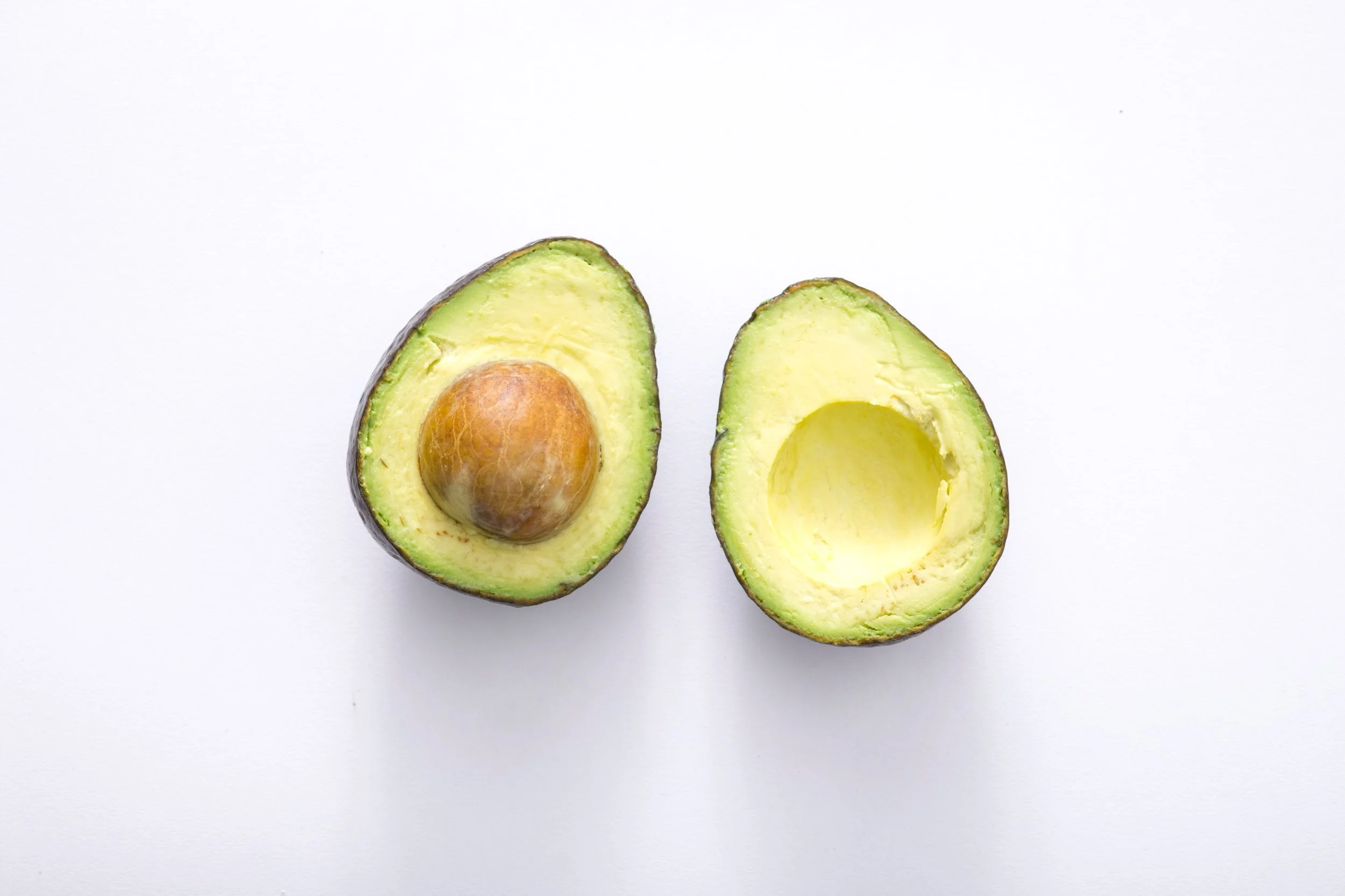Why go low-carb?
a Low-Carb lifestyle has gained much popularity in the recent years among healthcare professionals and individuals. and for good reason! are you ready to learn why?
Keep in mind that it is not uncommon to be a bit skeptical of a low-carb approach. Especially when we have been told for decades that a low-fat HIGH-CARB lifestyle is the way to go. It almost seems like the carbohydrates versus fats debate is a never ending story …
Just read this article with an open mind and a healthy dose of critical thinking. After reading, you can decide for yourself if our approach makes sense to you.
First things first: what exactly is a low-carb lifestyle?
As the name suggests, a low-carb lifestyle limits the intake of carbohydrates. Therefore, products such as legumes, milk, starchy vegetables, processed sugary products and fruits are restricted. A low-carb lifestyle promotes eating nutrient-dense foods like grass fed meats, avocados, fatty fish, eggs, grass fed butter, coconut oil, MCT oil, olive oil, nuts, seeds, non-starchy vegetables, and low-carb fruits that are naturally low in carbs and higher in healthy fats.
There are several ‘degrees’ of implementing a low-carb lifestyle and therefore there is no fixed definition of a low-carb lifestyle. Each approach has their own ‘rules’ on the types and amounts of carbohydrates to consume. The exact amount of carbohydrates really depends on the goals and personal situation of an individual.
We could say that there are 2 different approaches of a low-carb lifestyle with different ranges of the carbohydrate amounts:
50–100 grams. Also known as the low-carb high-fat lifestyle. In this range, there is room for vegetables and fruit. The primary goal of a low-carb approach is to lower blood sugar levels and insulin levels which ultimately leads to weight loss and other health benefits (to be explained later).
Below 50 grams. Also known as the keto lifestyle. On a keto lifestyle, there’s only room for fruits that are low in carbohydrates such as berries. The primary goal of a keto lifestyle is to get your body into a metabolic state called nutritional ketosis.
To compare these amounts: the average carbohydrate intake of a regular Western Diet lies between 250 - 300 grams of carbs per day. Most of these carbs come from processed food products such as cereals, white breads, pasta, pre-packed sandwiches and sodas. You probably understand that eating such a high amount of carbs on a daily basis brings serious health risks. Before we dive into that topic, it is important to understand the differences between implementing a low-carb lifestyle and a low-fat lifestyle.
In short, following a low-carb approach means that you consume more products that are naturally high in fat. On the opposite, with a low-fat lifestyle, you automatically eat more products that are high in carbohydrates. In the first situation, your body primary relies on burning fat for energy and in the second situation it relies on burning carbohydrates.
Let’s talk some science. Carbohydrates: the most important source of energy?
On a regular Western Diet which is lower in fat and higher in carbs, your body uses carbohydrates as its main energy source. This has everything to do with the fact that your body always takes the easiest and quickest path. It takes less time to break down carbohydrates for energy compared to fats especially when you consume carbs in larger amounts. Nowadays, organizations still claim that carbohydrates are the most important and efficient source of energy for your body since they are the quickest. Is this really true? To give an answer on this, we have to take a closer look on how carbohydrates and fats are broken down in your body.
first situation: using Carbohydrates as fuel
Some facts:
Carbohydrates are the first and quickest form of energy that your body burns when it needs fuel.
Your body can store up to a couple of thousand (2000) kilocalories of carbs.
1 gram of carbs provides 4 kilocalories.
After eating something that is high in carbs, carbohydrates are immediately broken down into simple sugars. These sugars are absorbed into your bloodstream, where they continue their journey as glucose. As a result, levels of blood sugar rise and higher blood sugar levels trigger the pancreas to release the hormone insulin. Insulin helps glucose to enter the muscle cells where it is used for activities. Mostly, not all consumed glucose is needed to provide the necessary amount of energy. Therefore, your liver, muscles and other cells store the extra amount of glucose for later use as glycogen. When this happens frequently, it results in fat storage.
When you consume carbohydrates throughout the day (the case on a Western Diet), your pancreas produces insulin on a continuous basis. Due to this, your blood sugar levels spike and drop all the time, resulting in feelings of cravings and hunger throughout the day. Internally, your body cells become less sensitive in response to insulin. This can lead to insulin resistance and higher blood glucose levels which are the root causes of developing pre-diabetes, obesity and obesity-related illnesses including Type 2 Diabetes (1). Insulin resistance refers to a situation where cells in your muscles, body fat and liver start resisting the signal that insulin is trying to send out.
second situation: Using fats as fuel
Some facts:
Fats are the slowest form of energy & the most concentrated source, providing almost twice as much energy as carbs.
Your body can store up to 90.000 kilocalories of fat.
1 gram of fats provides 9 kilocalories.
When carbs are scarce and blood sugar is in short supply to provide energy, your body starts to burn fat for energy and uses it as your primary fuel. These fats come both from high-fat foods as from stored body fat. In the intestine, fats are broken down into fatty acids & glycerol. In the liver, the fatty acid chains are converted into energy in the form of ketones / ketone bodies in up to 6 hours. Ketones are basically the by products of burning fat and are linked to health benefits such as reduced inflammation (2), and enhanced brain function (3). Since burning dietary fat for energy does not require the liver for initial processing, it does not need insulin as a signalling hormone. Therefore, dietary fat has almost no effect on insulin levels and relying on using fats for energy won’t result in higher blood sugar levels or insulin resistance (1).
so what makes us fat: fat or sugar?
In summary, these are the most important take-home messages:
Stored fat can be used as primary fuel, but only when glycogen is not available (so when eating low-carb or keto)
Fat stored in fat calls leads to increased weight gain
It’s the hormone insulin that promotes the flow of fatty acids into your fat cells
The more carbohydrates you eat, the more insulin your pancreas produces that enter the bloodstream
Simply put, the less carbohydrates you eat, the less insulin your pancreas produces. Less insulin means lower blood sugar levels and a higher insulin sensitivity and therefore you strongly decrease the chance of developing the most major Western diseases, namely insulin resistance, pre-diabetes, obesity, metabolic syndrome or Type 2 Diabetes.
so, What are the reasons why people implement a low-carb lifestyle?
There are several reasons why people decide to follow a low-carb lifestyle. The most profound one that has been researched for the longest time, is long-term weight loss without having constant feelings of hunger. In different randomized controlled trials (the golden standard of science), low-carb diets have been compared to low-fat diets and have shown significantly more weight- and fat loss in both healthy as obese individuals.
Other reasons to implement a low-carb lifestyle are
Developing overall healthier eating habits
Reducing risk factors associated with Type 2 Diabetes and Metabolic Syndrome (biggest health problems worldwide)
Improved endurance performances
Increased energy levels
Less sugar spikes and dips, so less hunger and cravings
An extensive amount of research shows that low-carb diets show greater improvements in blood triglycerides and cholesterol levels. Where triglycerides and LDL tend to go down, HDL levels will rise. These biomarkers are important risk factors for developing cardiovascular disease. In addition, decreased blood sugar and insulin levels have been found in combination with increased insulin sensitivity. High blood sugar and insulin levels are both important markers for developing pre-diabetes and Type 2 Diabetes (4 - 11).
How low should you go?
As being mentioned earlier, the amount of carbohydrates to consume really depends on the goal(s) and personal circumstances of an individual. Some people go extremely well on a diet that contains only 20 grams of net carbohydrates and others already achieve their health goals when eating 100 grams. It is mostly the case that for therapeutical reasons the approach is more often a ketogenic one than a low-carb high-fat one. This has to do with the fact that this approach puts you into nutritional ketosis, a metabolic state in which your body efficiently relies on burning fat and ketones for energy. This has especially shown great benefits for the reduction of seizures in people with epilepsy (12).
Other circumstances that play a role in the amount of carbohydrates to eat, are the level of activity, your metabolism, your health goals, your gender (women could benefit from eating more carbs during certain parts of their cycles), and your carbohydrate tolerance. This all you can measure by using an accurate blood ketone meter.
Mostly, we work with a carbohydrate intake range that’s between 20 - 70 grams of net carbs a day.
Bottom line of why to go low-carb
The main idea behind the low-carb lifestyle is that decreasing the amount of carbohydrates lowers your insulin levels and results in your body relying on fat for energy and becoming fat-adapted. When your insulin levels decrease, your body starts to burn stored fat for energy and doesn’t experience any blood sugar dips and spikes throughout the day. When you restrict your carbohydrate-intake, you also automatically increase your consumption of foods that are high in fat, nutrients, and protein. These foods boost satiety levels and really fuel your body instead of just ‘feeding it’. A low-carb high-fat approach ultimately leads to weight- and fat loss and other health benefits such as improvements in blood triglycerides and cholesterol levels.
Do you feel like eating low-carb might be the right approach for you? Schedule your free call with Lotte and find out how she can help you with a successful start!
Don’t you think it’s crazy that we are in the midst of an obesity epidemic, buying and consuming low-fat products that claim to help us lose weight?
Sources
1: Fung J. The Obesity Code: Unlocking the Secrets of Weight Loss. Scribe Publications. 2016
2: Veech RL. The therapeutic implications of ketone bodies: the effects of ketone bodies in pathological conditions: ketosis, ketogenic diet, redox states, insulin resistance, and mitochondrial metabolism. Prostaglandins Leukot Essent Fatty Acids, 2004.
3: Henderson ST, Vogel JL, Barr LJ, Garvin F, Jones JJ. Study of the ketogenic agent AC-1202 in mild to moderate Alzheimer's disease: a randomized, double-blind, placebo-controlled, multicenter trial. Nutrition & Metabolism (London), 2009.
4: Foster GD, et al. A randomized trial of a low-carbohydrate diet for obesity. New England Journal of Medicine, 2003.
5: Samaha FF, et al. A low-carbohydrate as compared with a low-fat diet in severe obesity. New England Journal of Medicine, 2003.
6: Sondike SB, et al. Effects of a low-carbohydrate diet on weight loss and cardiovascular risk factor in overweight adolescents. The Journal of Pediatrics, 2003.
7: Brehm BJ, et al. A randomized trial comparing a very low carbohydrate diet and a calorie-restricted low fat diet on body weight and cardiovascular risk factors in healthy women.The Journal of Clinical Endocrinology & Metabolism, 2003.
8: Yancy WS Jr, et al. A low-carbohydrate, ketogenic diet versus a low-fat diet to treat obesity and hyperlipidemia. Annals of Internal Medicine, 2004.
9: JS Volek, et al. Comparison of energy-restricted very low-carbohydrate and low-fat diets on weight loss and body composition in overweight men and women. Nutrition & Metabolism (London), 2004.
10: Westman EC, et al. The effect of a low-carbohydrate, ketogenic diet versus a low-glycemic index diet on glycemic control in type 2 diabetes mellitus. Nutrion & Metabolism (London), 2008.
11: Volek JS, et al. Carbohydrate restriction has a more favorable impact on the metabolic syndrome than a low fat diet. Lipids, 2009.
12: Rogovik, AL and Goldman, RD. Ketogenic diet for treatment of epilepsy. Canadian Family Physician, 2010.



